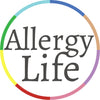Personal Contingency Actions (PCAs) with Food Allergies
Personal Contingency Actions (PCAs) are key routines you can take and set up to reduce placing yourself in risky situations.
When you have a Food-related Allergy, Intolerance or Autoimmune Condition, taking Personal Contingency Actions (PCAs) will be vital for you not just to avoid having a reaction, but also to ensure you don't have a negative experience that impacts your plans due to an unforeseen outcome.
In this insight, we cover two key areas where taking Personal Contingency Actions (PCAs) may ensure a different outcome and a more enjoyable experience if you have a Food-related Allergy, Intolerance or Autoimmune Condition-
- Buying Food Products
- Visiting Food and Drink Venues

1- BUYING FOOD PRODUCTS
When buying food products, including ready-made supermarket foods, some PCAs you can take are:
- Checking labels
- Researching all the ingredients
- Speaking to manufacturers about their manufacturing processes
- Speaking to the brand about any "hidden" ingredients
- Calling distributors about their packaging processes
- Reading reviews and content from others that have similar requirements
- Look to use the many safe alternatives currently available for many household ingredients and products.
Did you know? All Australian brands have to follow food labelling standards set by FSANZ. These standards are enforced by the Australian states and territories.
On 25 February 2021, the Food Standards Code was changed to introduce new requirements for allergen labelling. These changes were introduced to help people find allergen information on food labels more quickly and easily and allow them to make safe food choices.
Food businesses have until 25 February 2024 to transition to the new requirements. During this transition period, they can comply with either the existing or new allergen declaration requirements.
If a food is packaged and labelled before 25 February 2024 and it complies with the existing allergen declaration requirements, then the food can be sold for up to two years (i.e. until 25 February 2026).
The change also means individual tree nuts, molluscs and individual cereals must all be declared separately. Click here to learn more (EXTERNAL LINK).

2- VISITING FOOD AND DRINK VENUES
When visiting Food and Drink venues, some PCAs you can take are:
- Call or Message ahead of time to check
- Check the Friendly Venue listings to see who can cater for you and what they offer
- Read the experiences of other patrons (Google Reviews are a good place to start)
- Go on their website to read their menu and understand their ability to cater for you (check if they have flexible meals)
- (Before going to the Venue) Carry your Emergency Medication. Along with emergency medication, it's important that you Carry your Visual Allergy Alert
- (When Ordering in person) Show and Tell to make the server/venue Allergy Aware when placing your order. You can do this by verbally advising them of your allergies or using a Visual Allergy Alert like an Allergy Card.
- (Before you eat) Wash your hands in case you have come in contact with your allergens
- (When receiving your order) Double check with the server that this is your meal that has been catered for your allergies correctly
- (When you do go) Don't share meals to avoid cross-contamination (unless your dining partners are also eating with your requirement)
Taking Personal Contingency Actions such as the above will save you time, prevent disappointment and reduce risks. Often venues might even especially get the kitchen ready to cook a friendly meal you want ahead of time. So by advising them ahead of time with your requirement, it might, in fact, allow them to cater for your needs.
And most of all, be understanding with Food and Drink venues. Only because a venue doesn't cater to your requirements, it doesn't mean that they don't want to.
Food preparation and safety is a highly delicate process, and if you are advised that the venue cannot serve you, it is only for your safety and to ensure you can have a positive experience, even if that is elsewhere.
---
The information provided on Allergy Life Australia is to generally educate and inform you about living with allergies, intolerances and conditions, and is not intended as medical instruction or as a substitute for diagnosis, examination and advice by a qualified health care provider.




